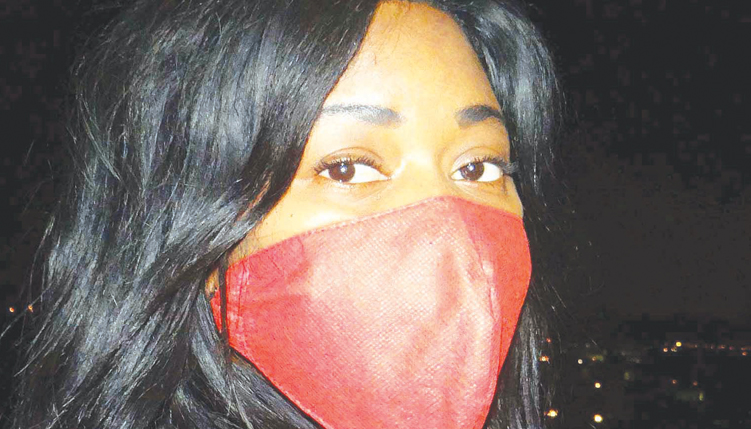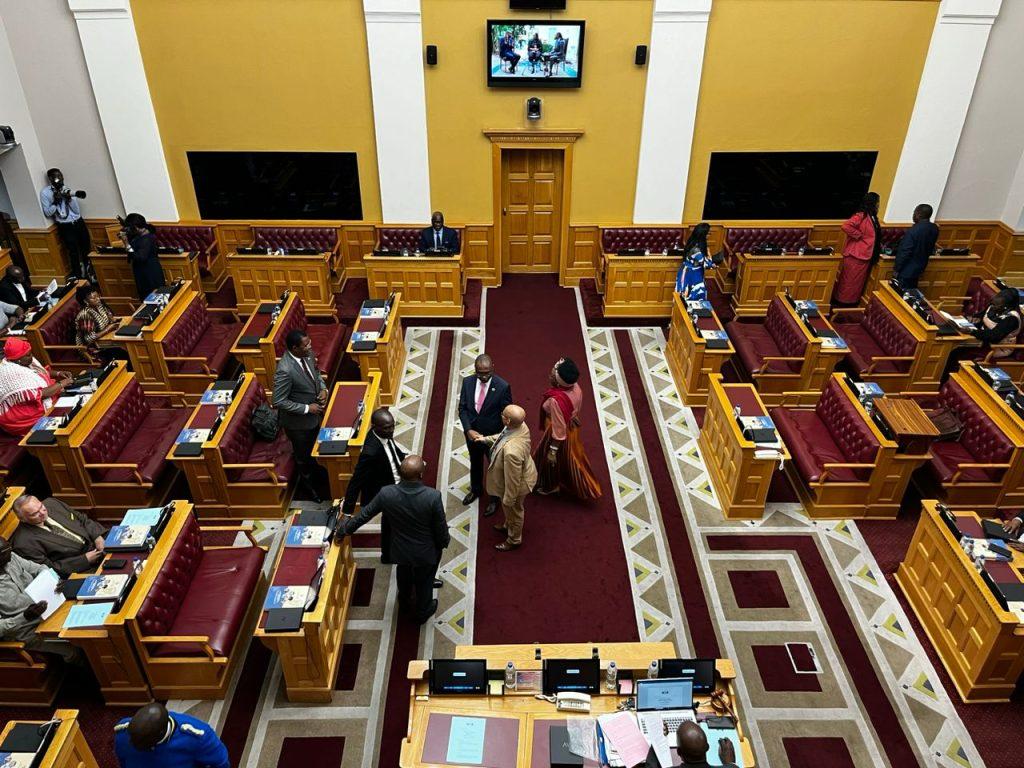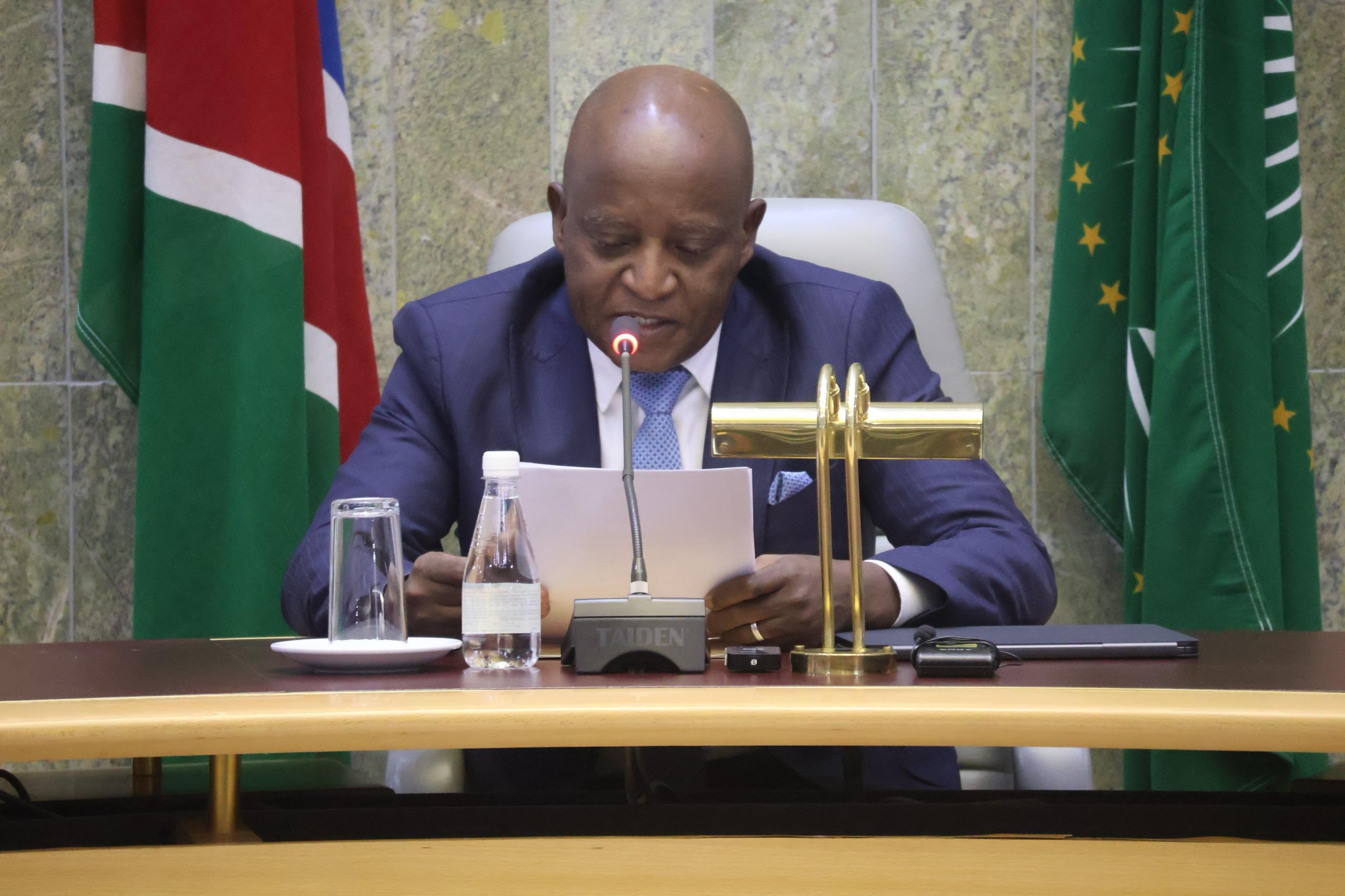The allure of Zoo Park depends on who you ask.
If you inquire with an endearing young woman trying to get there by way of the middle of the street, the park’s appeal is left to one’s imagination. To the photographers calling out to take your picture as people hurry down Independence Avenue, the expanse is a site of hope to earn their daily bread.
To me, Zoo Park is a place of protest. The gathering ground on which I’ve documented the hopeful end or fervent beginning of demonstrations decrying slander against miniskirts, raising hell against rising rates of sexual and gender-based violence or campaigning for the recognition of the most basic human rights.
Over a decade ago, Zoo Park is where I first notice an activist who is well into her late 50s. She’s grey-haired, front row and endowed with an all-consuming spiritual fire that was born in the anti-apartheid protests of the 1980s.
When Namibia’s independence is long won, the elder activist joins rallies against rape culture and I wonder when her work will be done.
A decade later, reading the headlines about the relentless rape of children, a 104-year-old grandmother and myriad women across Namibia, I’m starting to think the answer to my question is … Never.
Even more so, when I dare to plunge into the darkness that is the resultant commentary on social media. It is here that I lose hope. The victim blaming, lewd jokes, dehumanisation and sheer shaming of victims of rape is staggering, and speaks not only to the nation’s entrenched rape culture but to the frightening depths of our desensitisation.
Once, four years ago, as the Covid-19 pandemic raged on, the complete horror of Namibia’s rape crisis sent the youth to the street. The #ShutItAllDown protests surrounded Zoo Park and the adjacent roads. It knocked on the doors of parliament and those unlucky enough to be rounded up and detained by law enforcement were dubbed ‘The Zoo Park 25’.
In August, the Namibian Police relayed that 666 rape cases were reported between 1 January and 30 June. That number is terrifying on many levels but primarily because it amounts to almost four rape cases a day. When appreciating the magnitude of this, one must also remember that these statistics refer only to what is actually reported.
At a time when rape is treated as a punchline or a fact of life that looms over the entirety of a woman or girl’s existence, speaking out can feel futile. It isn’t.
When rape victims testify and formally document this crime, it gives us a measure of the length and breadth of this awful thing.
It tells us who (mostly men and boys, sometimes relatives), where (any and everywhere you can think of) and why. Studies from around the world report that rape is often tied to feelings of hostility towards women and girls, anger, the need to exert power and to establish control.
To speak is to hold perpetrators accountable and puts pressure on our leaders to implement socialisation and punitive measures that will make a difference and dissuade such behaviour in society.
Rape proliferates because in one way or another we tell men and boys – the most common perpetrators – that this violation is okay, that they are entitled to women and girls’ bodies and that sexual violence is a lower or negligible category of crime.
In Namibia this week, there is news of another dreadful deed. A teen boy allegedly entered a girls’ hostel in the Omaheke region, let himself into a female pupil’s room, covered her face with a blanket and raped her.
I think the desperate delusion so many people cling to is that things like rape, racism and the worst of society’s ills will die out with the next generation. But the next generation is here and they have rapists too.
The question is: What are we going to do?
Walking past Zoo Park on a sunny day, smiling at the photographers, remembering protests and thinking of that elder activist, I know there is no simple answer. Ten years ago, I didn’t understand how a person who protested apartheid could still be demonstrating about an age-old and persistent evil, but now I do.
You march, you scream, you bear witness and you write for just as long as it takes to change the world.
– martha@namibian.com.na; Martha Mukaiwa on Twitter and Instagram; marthamukaiwa.com
Stay informed with The Namibian – your source for credible journalism. Get in-depth reporting and opinions for
only N$85 a month. Invest in journalism, invest in democracy –
Subscribe Now!










